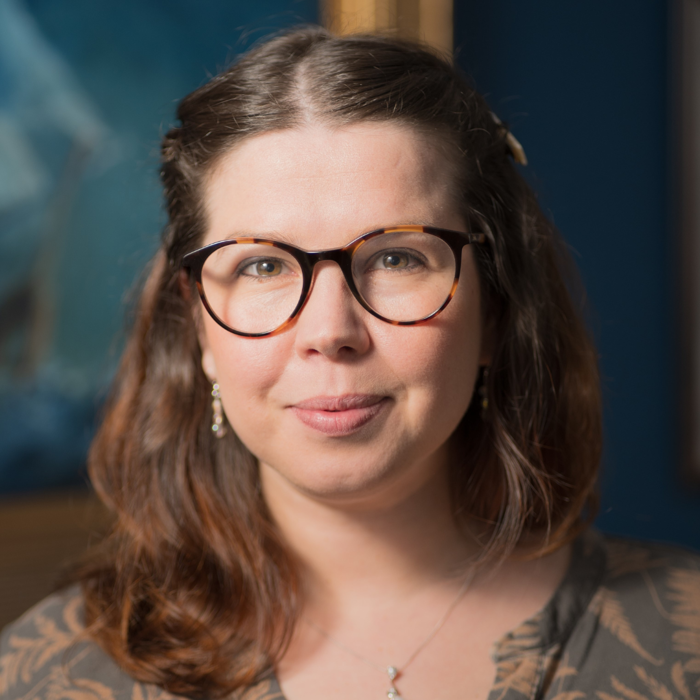Parallels in learning to talk and sing: Social mechanisms of vocal learning in baby humans and songbirds
Tuesday 7th May 2024, 5:00 PM - 7:00 PM (London Time)
How do babies learn to talk? Despite the immense variety of sounds we associate with the animal world, the ability to learn a vocal repertoire is a rare phenomenon, emerging in only a handful of groups, including humans. To gain a better understanding of the development and evolution of vocal learning, we will examine the processes by which birds learn to sing and human infants learn to talk. A key parallel in the vocal development of birds and babies is the social function of immature vocalizations. The responses of adults to the plastic song of birds and the babbling of babies create social feedback that guides the young towards mature vocalizations. I will present experiments demonstrating how the immature sounds of young birds and babies regulate and are regulated by social interactions. The form and timing of these interactions have strong influences on the development of mature birdsong and language. The difficulty of measuring rapid social interchanges organized by immature vocalizing has led many to overlook their importance and assume that young songbirds and human infants learn by passive exposure followed by motor practice. My data indicate that vocal learning is an active, socially-embedded process. By creating feedback that is both inherently informative and socially relevant, structured social interaction boosts the salience of acoustic patterns in the input and facilitates learning of speech and song.
Michael Goldstein
Michael Goldstein is a Professor of Psychology and Stephen H. Weiss Presidential Fellow at Cornell University.

Attend this course for as little as £22 as part of the Voice Professional Training CPD Award Scheme.
Learn MoreSorry, this is an archived short course...
We have plenty of upcoming short courses coming soon. See details of some of them below or look at the full list of short courses.

Monday 7th July 2025
2:00 PM - 4:00 PM
Tuesday 8th July 2025
2:00 PM - 4:00 PM
Wednesday 9th July 2025
2:00 PM - 4:00 PM
Friday 11th July 2025
2:00 PM - 4:00 PM
Monday 14th July 2025
2:00 PM - 4:00 PM
Tuesday 15th July 2025
2:00 PM - 4:00 PM
Wednesday 16th July 2025
2:00 PM - 4:00 PM
Friday 18th July 2025
2:00 PM - 4:00 PM
(London Time)
Introduction to statistics and working with quantitative data for Voice Professionals: 8-Session Online Bootcamp

Dr David Cane
This certificated statistics course is ideal for individuals interested in laying a solid foundation in quantitative research methods. By focusing on essential statistical principles, you will be equipped with the tools to understand and apply quantitative research techniques effectively. Statistics is a crucial component of quantitative research; mastering it will enable you to grasp quantitative methods more confidently and precisely.


Wednesday 16th July 2025
2:00 PM - 4:00 PM
(London Time)
Emotion and Performing Accents and Dialects: why does Emotion Get in the Way?

Louisa Morgan
At points of heightened emotion, it is common for actors working in an accent to default to their natural speech. How do we help performers to avoid this issue and provide them and their directors with the confidence they need regardless of the emotional demands of the piece? What can we learn from research in vocal expression of emotion to help actors to embody the emotion and keep control of their voice and accent? Our very own Louisa Morgan will guide participants through the latest research and offer practical suggestions for working with performers needing to navigate this challenge.

Tuesday 22nd July 2025
5:00 PM - 7:00 PM
Tuesday 29th July 2025
5:00 PM - 7:00 PM
Tuesday 5th August 2025
5:00 PM - 7:00 PM
Tuesday 12th August 2025
5:00 PM - 7:00 PM
Tuesday 19th August 2025
5:00 PM - 7:00 PM
Tuesday 26th August 2025
5:00 PM - 7:00 PM
(London Time)
Certificated Public Speaking Coach qualification - with John Henny

John Henny
Would you like to be a certified public speaking coach? Join the renowned John Henny for this exciting new online course! This six-week online certification course is designed to equip voice teachers with the specialised skills needed to work with public speakers, corporate trainers, educators, and presenters. Unlike a general public speaking course, this program is specifically tailored to train-the-trainer, giving voice professionals structured methodologies, coaching techniques, and applied skills to enhance vocal delivery, confidence, and influence in professional speakers.
